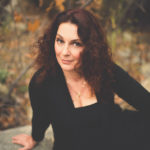How we use our voice is often determined in childhood, but these things can change. Fearless talks can transform everything, especially your dating life.
A fearless break through in loving communication happened for a dear friend this week. She graciously allowed me to share the story of her path to transformation.
For years, “Sarah” had struggled to express her true feelings, to communicate her needs, to set boundaries in friendships, with family members, and most of all, in her dating relationships.
This difficulty plagued her for as long as she could remember. She observed others who seemed so easily able to say, “No” when they meant, “No.” Or even to speak up and say, “Yes” to wanting or desiring something in her life—acknowledging her favorite place to eat, asking for time alone, or trying something new.
More deeply, Sarah struggled with how to have those “difficult talks” with those who meant the most to her. She avoided, she remained invisible, and she ignored her feelings. Yet, the thing is, the feelings didn’t go away. They built up. They festered. They gnawed away at her.
Holding it all in would eventually lead to a breakdown, to an outburst, or cutting someone she cared for out of her life.
Without authentic communication in her life, her life felt half-lived.
It’s as if Sarah’s inability to communicate was halting her ability to live, to relate, and to love.
Could This Be You?
- Are there ways your life is feeling half-lived due to not speaking your truth?
- Are you holding back on some small, or perhaps, ground-breaking talks in your life?
- Could voicing your thoughts, feelings, and experiences transform your life and your relationships?
The Apple Doesn’t Fall Too Far From the Tree
Why is it that some people seem to be able to easily and openly communicate; whereas, others struggle to voice their thoughts and feelings in a clear, effective manner?
Surprise, surprise…the first experience of learning how to communicate involves early and ongoing experiences of communication with your parents/caregivers, siblings, and others close to your inner circle.
Content: What was talked about? What was taboo to talk about?
Quality: How was it talked about? (i.e., tone, volume, reciprocal, bidirectional or one-directional)
When: Was it immediately talked about or did it take time to discuss? Was there an ideal and non-ideal timing to discuss things in your family?
Who: Who did most of the communicating? Who was allowed/not allowed to communicate?
To illustrate this, Sarah learned that her needs and emotional boundaries were not as important as others’, particularly her father’s. The oldest child, but still very young, Sarah became the confidante to her father following her parent’s divorce.
As she matured out of childhood and into her pre-teens, she began to tell her father that she was not comfortable with this role. Unfortunately, her request was not honored by her father. Instead, he reacted in anger and frustration each time she tried to speak up about her discomfort. Over the years, she gave up, and just learned to listen and to support his needs.
A Seed Was Planted
What and how you learned about communication during your early years plants a seed for how you now communicate and relate as an adult. And, the more important a new special someone seems, the more these old communication dynamics are likely to be triggered. Of course there are other influences, especially as you become an adult and realize your skills need some tweaking, but these set the stage for what is to come later.
As you can see, Sarah learned that in order to have a relationship with her father (and later others), she had to suppress her emotions, deal with discomfort, and attend to others’ needs before her own. This of course, made her a great friend and girlfriend because she was always attentive and supportive, and yet, it was not as helpful in other ways.
Effect on Relationships
There are many ways in which learning communication skills, such as Sarah did, can affect relationships as an adult, and in particular, dating relationships.
For Sarah, her lack of voice and inability to communicate about both small and big matters lead to almost always letting a date take the lead in selecting activities, choosing restaurants, and generally followed suit with what her date had in mind. She had difficulty speaking up when she disliked a choice in restaurant or activity, and did not feel comfortable firmly setting physical boundaries.
Eventually, she would start to merge interests, listen to the music her date did, let go of her own interests, and did not nurture her friendships as much or as often—she focused more on attending to the developing relationship. In short, she had utilized her voice very little and eventually lost herself in the relationship.
A Changed Voice, A Transformed Partner
Thankfully, after several relationships ending in confusing and painful ways, Sarah started to work with a therapist, who helped her realize what she learned and how to begin communicating differently.
She began to learn how she was participating in the continuation of these earlier established communication patterns. She began to recognize the negative impact her lack of boundaries and voice had on her ability to build a sustainable, healthy relationship.
As is common when individuals undertake large relational changes, Sarah’s initial use of her voice was loud, shaky, and a bit clumsy—if I might say—but it was fearless.
As she practiced and was mindful about what was coming up and why, her delivery grew more clear, steady, and audible to her dating partners. Her thoughts, feelings, and boundaries are now heard, respected, and valued.
Most of all, through her growth and practice of communicating with dating partners, Sarah was able to take a momentous, fearless, and powerful step—-she was finally able to use her voice with her father, and she was heard.
This, my dears… is what it’s all about.
I admire Sarah for her courage to say “no” more, to struggle through the discomfort and vulnerable space of therapy, to practice using her fearless voice as many times as she needed to, in order to grow into a stronger, more authentic Sarah—a voice that will be heard.
[image: via shutterstock]











